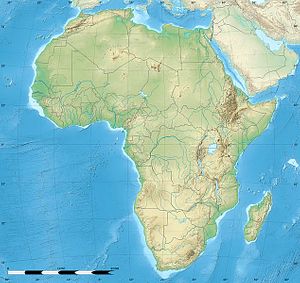While China and the United States have generally competed for influence in Africa, a new Chinese proposal might be looking to change that competition into greater cooperation, particularly in the area of international development. According to a Financial Times report, China has put forth a proposal inviting the U.S. to cooperate with it in the financing and building of infrastructure in Africa. The implications of cooperation between China and the U.S. on development in Africa could be far-reaching and affect the future of international development aid more broadly. Currently, China and the U.S. both maintain a broad presence within Africa and provide development aid to several countries separately. China runs the China-Africa Development Fund, which is tasked with funding Chinese projects in Africa and stimulating Sino-African trade cooperation.
U.S.-China collaboration in Africa seems to be a highly sensible idea. For two countries that are seeing their bilateral relations increasingly strained by tension in the Asia-Pacific, cooperation in Africa would be relatively less controversial. Some in the U.S. accuse China of brazenly pursuing checkbook diplomacy in Africa, even going as far to call China’s Africa policy “neocolonial” — a label China has been keen to avoid. The United States has also complained about China’s lack of transparency in its African development projects and accused it of exploitative practices. By cooperating with China on joint development ventures, the United States could attempt to condition Beijing’s practices in Africa.
As it does elsewhere, Beijing prefers straightforward bilateral deals in Africa. It has engaged in some limited multilateral development ventures in Africa, including contributing $2 billion to a fund under the auspices of the African Development Bank. Its proposal to the United States is not about cooperating on several projects all across Africa. At this point, Beijing has only proposed a pilot cooperation project between the two global economic powerhouses on a hydropower complex in the Democratic Republic of Congo. The project would be worth around $12 billion. U.S. officials acknowledge that cooperating with China in Africa would be an “important breakthrough,” but also note that “parts of President Barack Obama’s administration, Congress and the multilateral financial institutions remain wary over US involvement.”
As Washington hosts the U.S.-Africa Leaders Summit in Washington this week, it will have to convince African leaders of the United States’ continued relevance in Africa, particularly when it comes to development. Concerned about having to “catch up with an emboldened China that has aggressively moved in to corner the African market and supplant the United States as the most influential outside nation,” U.S. policymakers may find that cooperating with China is far better than the alternative: being left behind entirely.

































